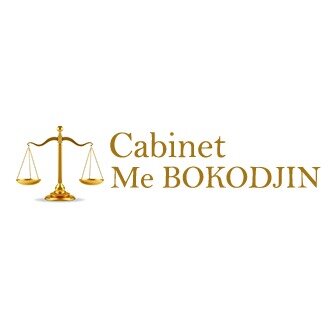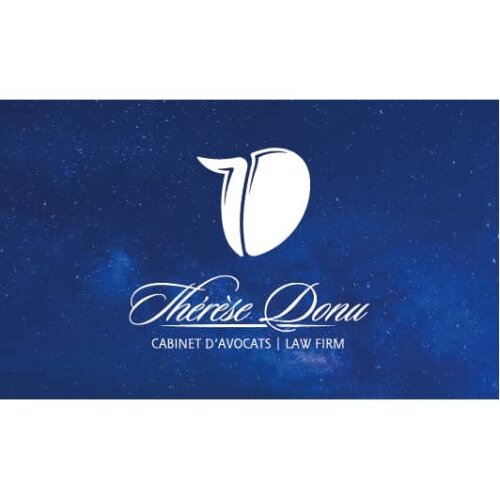Best Mining Law Lawyers in Lomé
Share your needs with us, get contacted by law firms.
Free. Takes 2 min.
List of the best lawyers in Lomé, Togo
About Mining Law in Lomé, Togo
Mining Law in Lomé, Togo, refers to the legal framework that governs the exploration, extraction, processing, and export of mineral resources within the city and the greater Togolese territory. Togo is endowed with various minerals, such as phosphates, limestone, iron ore, and manganese, which are significant contributors to the country's economy. The laws seek to incentivize investment while ensuring responsible mining practices, environmental protection, and equitable benefit-sharing. The legal structure combines national mining legislation, international agreements, and local regulations that stipulate the requirements and procedures for acquiring mining rights, operating mines, and managing disputes.
Why You May Need a Lawyer
Mining activities, whether large-scale or artisanal, are subject to numerous legal requirements in Lomé, Togo. Common situations where legal expertise is crucial include:
- Securing exploration or exploitation permits and negotiating mining rights
- Drafting and reviewing contracts and joint venture agreements
- Ensuring compliance with environmental and safety standards
- Handling land acquisition, resettlement, or compensation issues
- Resolving disputes with the government or local communities
- Understanding and managing tax obligations and royalty payments
- Foreign investment in the mining sector, including navigating regulatory approvals
- Protecting intellectual property related to mining processes or technology
- Complying with export regulations for minerals
- Advising on corporate governance and labor laws in mining operations
Local Laws Overview
Mining Law in Lomé, Togo, is primarily governed by the Mining Code (Code Minier), most recently updated by Law No. 96-004/PR and its subsequent amendments. Key aspects of the local laws include:
- Licensing and Permits: Mining activities require government-issued licenses, typically starting with an exploration permit followed by an exploitation license. Applications must meet technical, environmental, and financial criteria.
- State Participation: The government often retains a participation share in mining ventures and may impose conditions to ensure national interests.
- Environmental Protection: Environmental impact assessments and ongoing monitoring are mandatory. Operators must submit reclamation plans and are liable for damages.
- Community Rights: Laws address compensation and resettlement procedures for affected landowners and communities.
- Taxation and Royalties: Mining companies must pay various taxes, royalties, and fees, with rates governed by the Mining Code and individual agreements.
- Dispute Resolution: Disputes may be settled through national courts or, in some cases, international arbitration if stipulated in contracts.
- Foreign Investment: There are specific provisions that regulate foreign direct investment, emphasizing both incentives and compliance obligations.
Frequently Asked Questions
What types of mining licenses are available in Lomé, Togo?
The primary types include reconnaissance permits, exploration permits, and exploitation (mining) licenses. Each type has its own application procedures, duration, and rights granted.
How long does it take to obtain a mining license?
The process timeline can vary but typically ranges from several months to over a year, depending on the complexity of the project and the completeness of the application.
Can foreign companies own mining rights in Togo?
Yes, foreign entities can own mining rights, but they are subject to additional registration requirements and regulatory oversight to ensure compliance with local laws.
What are the environmental requirements for mining operations?
Operators must conduct environmental impact assessments, receive approval before commencing activities, and submit regular environmental monitoring reports.
What is the role of the government in mining projects?
The government acts as a regulator, grantor of licenses, and often as a stakeholder by holding a share in significant mining ventures.
Are there specific tax obligations for mining companies?
Yes. Mining companies are required to pay corporate income tax, royalties based on production, and other fees as outlined in the Mining Code and tax laws.
What happens if there is a dispute between a mining company and the government?
Disputes are usually resolved first through negotiation, but can proceed to national courts or agreed arbitration mechanisms, particularly for foreign investors.
How are affected communities compensated?
Laws mandate fair compensation for landowners and communities impacted by mining activities, including relocation assistance and community development projects.
Do mining companies need to provide rehabilitation plans?
Yes, all mining operators must submit a mine closure and site rehabilitation plan as part of their licensing process and ensure site restoration post-mining.
Are there penalties for mining without a license?
Yes. Engaging in unauthorized mining can result in heavy fines, confiscation of equipment, or imprisonment under Togolese law.
Additional Resources
If you need more information or assistance, consider contacting or consulting the following resources:
- Ministry of Mines and Energy (Ministère des Mines et de l'Energie), Lomé
- Chamber of Mines of Togo (Chambre des Mines du Togo)
- Direction Générale des Mines et de la Géologie
- Local law firms specializing in mineral resources and extractive industries
- International organizations offering guidance on mining regulations, such as the Extractive Industries Transparency Initiative (EITI)
- Local non-governmental organizations focused on natural resource governance
Next Steps
If you are considering or involved in mining activities in Lomé, Togo, it is advisable to seek specialized legal counsel early on. Here is how to proceed:
- Identify experienced lawyers or law firms in Lomé with expertise in mining and natural resources law
- Collect and prepare all relevant documents, including business plans, financial statements, and previous agreements
- Request an initial consultation to discuss your project and understand the applicable legal requirements
- Work closely with your legal advisor to navigate the licensing process, draft necessary contracts, and ensure compliance with all legal and environmental standards
- Keep communication open with local authorities and affected communities throughout your project
- Stay updated on changes in mining regulations and related environmental or labor laws
By following these steps, you will be well-positioned to operate legally, responsibly, and successfully in Lomé's mining sector.
Lawzana helps you find the best lawyers and law firms in Lomé through a curated and pre-screened list of qualified legal professionals. Our platform offers rankings and detailed profiles of attorneys and law firms, allowing you to compare based on practice areas, including Mining Law, experience, and client feedback.
Each profile includes a description of the firm's areas of practice, client reviews, team members and partners, year of establishment, spoken languages, office locations, contact information, social media presence, and any published articles or resources. Most firms on our platform speak English and are experienced in both local and international legal matters.
Get a quote from top-rated law firms in Lomé, Togo — quickly, securely, and without unnecessary hassle.
Disclaimer:
The information provided on this page is for general informational purposes only and does not constitute legal advice. While we strive to ensure the accuracy and relevance of the content, legal information may change over time, and interpretations of the law can vary. You should always consult with a qualified legal professional for advice specific to your situation.
We disclaim all liability for actions taken or not taken based on the content of this page. If you believe any information is incorrect or outdated, please contact us, and we will review and update it where appropriate.











